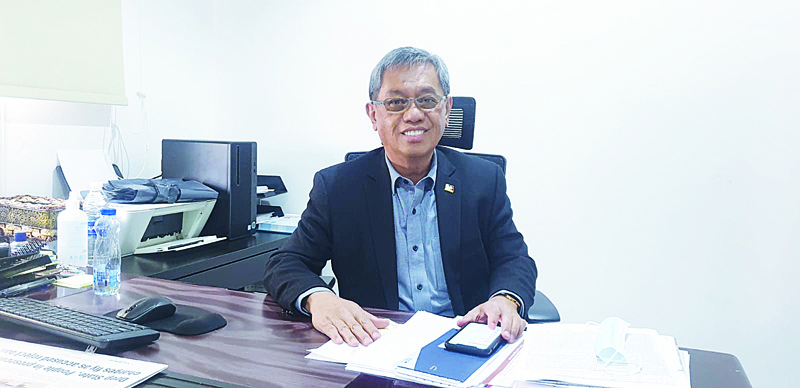 KUWAIT: Philippine Labor Attache to Kuwait Nasser Mustafa.
KUWAIT: Philippine Labor Attache to Kuwait Nasser Mustafa.By Ben Garcia
KUWAIT: The Philippines and Kuwait have finally agreed to open the recruitment of new Filipino domestic helpers from April. "Everything has been ironed out except for a few technical issues, like the inspection of accommodations of domestic helpers to be provided by the foreign recruitment office in Kuwait, and some more briefings with the secretaries of recruitment agencies to explain to them the tripartite contract which we will be using from now onwards," said Nasser Mustafa, Philippine Labor Attache to Kuwait, in an exclusive interview with Kuwait Times yesterday.
Mustafa said recruitment could start by April if all issues are resolved by the end of March. "Last Monday we had the last and final Zoom meeting with Philippine Labor Secretary Silvestre Bello III, along with the Local Recruitment Agency (LRA) and Foreign Recruitment Agency (FRA) owners. Our labor secretary in his opening statement reiterated his firm stand on all the provisions of the tripartite contract which we all agreed and signed. He said it must be implemented," he said.
"In fact those who are returning domestic helpers and are coming to the embassy for the contract, we are now using the tripartite contract. We have been asking employers to sign this contract since I arrived here last week," he said. Mustafa is the labor attaché of the Philippines to both Kuwait and Saudi Arabia. "These tripartite contracts will be used by new recruits and will be our standard for hiring domestic helpers from the Philippines," he emphasized. "The final say will always come from our secretary of labor, so we have a meeting scheduled in a few days' time. So maybe by April we can start the recruitment."
Before the virtual meeting last Monday, Mustafa also held several meetings with officials from the Ministry of Interior and the Public Authority for Manpower (PAM). "I also met several officials from the Talha Deportation Center and several other agencies in charge of the affairs of domestic helpers. They were very cooperative and are willing to accept all the requests of the Philippine government," Mustafa said.
"Since Kuwait will not allow the Philippine Embassy to maintain a shelter to house runaway domestic helpers, PAM has committed to accept at least 30 domestic helpers daily. PAM will serve as their transit point before they are sent home. Since they are running away from their employers' homes, our primary concern is the safety and well-being of our people. We will make sure that these individuals endorsed by us are ready to go home at any given time, so maybe they will stay a maximum of one or two weeks only at the PAM shelter," he added.
Provisions in the tripartite contract include providing the housemaid with decent and appropriate housing equipped with all the necessities, providing suitable food and clothing, providing medical treatment in case of sickness pursuant to the healthcare insurance system of Kuwait, salary must be paid at the end of the month - not less than the designated amount signed by both parties, compensating the housemaid in case of injury while during work, employers must issue a valid residency for the duration of contract, handle all the expenses to bring the housemaid, and in case of death, the employer must also bear the expenses of the deceased body.
The new tripartite contract also mentions that the employer is not allowed to assign the worker outside Kuwait without an agreement from the worker. The housemaid is also allowed to use the phone outside working hours, provided that she maintains the privacy of the household and in a manner consistent with public morals. Working hours must be 12 hours daily and employers must allow the housemaid to rest for eight continuous hours.
They must have a fully-paid weekly day off, annual leave, end-of-service benefit or one full month for every year of service, plus a bonus equivalent to one month's salary annually. The employer is not allowed to keep the passport in their possession. The employer needs to provide an economy ticket to the worker at the end of her contract, and in case of conflict the case will be referred to the Public Authority of Manpower.










